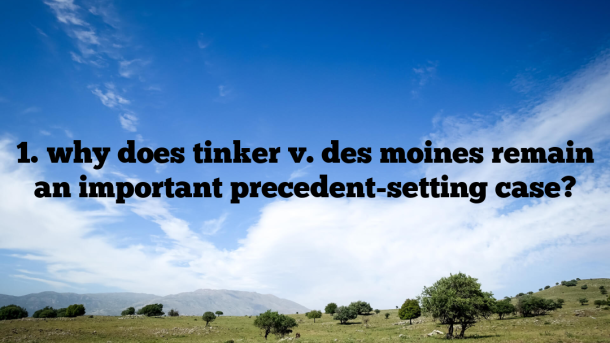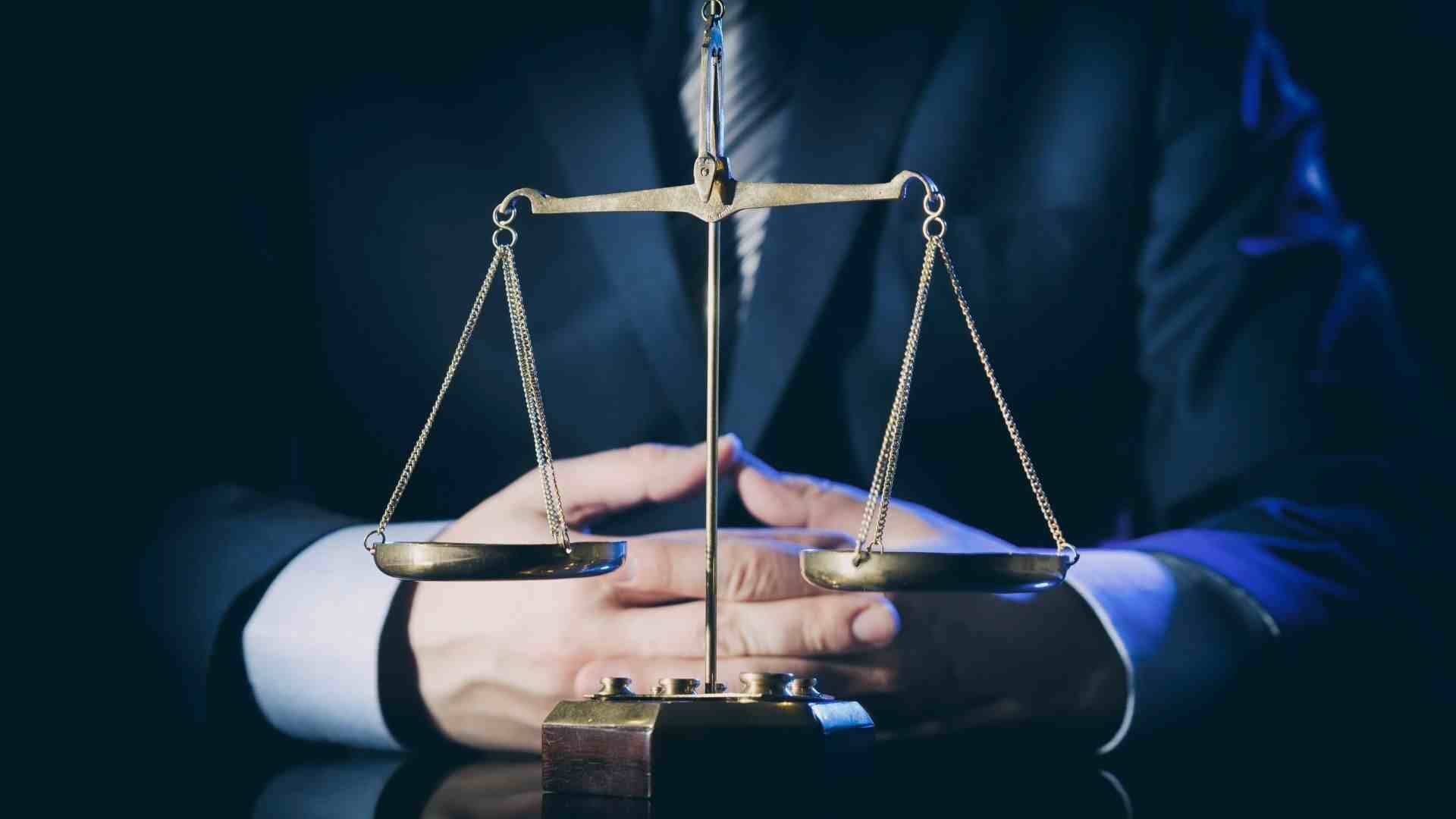Why does tinker v. des moines remain an important precedent-setting case?
In the hallowed halls of constitutional law, certain cases stand as pivotal moments that set the stage for the evolution of legal principles. Tinker v. Des Moines, a case born from the charged atmosphere of the 1960s, emerged as a catalyst, forever altering the landscape of constitutional precedent. This exploration delves into the crucial role played by Tinker in shaping the broader evolution of constitutional principles, unraveling the layers that set the stage for its enduring impact.
The Landscape of the 1960s: A Crucible of Social Change
The Turbulent 1960s: Vietnam War and Student Activism:
The 1960s were marked by a maelstrom of social and political change, with the Vietnam War at its epicenter. As protests against the war gained momentum, a group of students in Des Moines, Iowa, sought to make their dissent visible by wearing black armbands. Little did they know that this seemingly innocuous act would become the catalyst for a legal saga that would echo through the corridors of constitutional law.
The Birth of Tinker: Armbands as a Symbolic Act:
Tinker v. Des Moines was born from the symbolic act of wearing black armbands. The Supreme Court, in its 1969 decision, recognized the power of this expression and, in doing so, set the stage for a broader discourse on the constitutional rights of students. Tinker became a beacon that illuminated the path for subsequent cases, establishing the foundational principle that students do not “shed their constitutional rights to freedom of speech or expression at the schoolhouse gate.”
Tinker’s Impact: Pioneering the First Amendment Frontier
The First Amendment as a Shield: Tinker’s Bold Assertion:
At its core, Tinker marked a departure from conventional notions about the scope of constitutional rights within educational institutions. Justice Abe Fortas, in the majority opinion, boldly asserted that students, despite being within the confines of the school, retain their First Amendment rights. This pronouncement was revolutionary, establishing a new frontier where the protective shield of the First Amendment extended to the expressive rights of students.
The Tinker Standard: Balancing Rights and Responsibilities:
While acknowledging the First Amendment rights of students, Tinker also introduced a crucial element — the “substantial disruption” standard. This standard became the fulcrum upon which the delicate balance between the rights of students and the responsibilities of educational institutions rested. Tinker set the stage for a nuanced understanding of the interplay between free expression and the need for maintaining order within the educational environment.
Unraveling the Threads: Subsequent Challenges and Clarifications
Bethel School District v. Fraser (1986): Expanding and Contracting Boundaries:
As Tinker’s precedent solidified, subsequent cases both expanded and contracted its boundaries. Bethel School District v. Fraser, in 1986, marked a departure by allowing schools to discipline students for lewd or indecent speech, even if it did not cause a substantial disruption. This nuanced shift added layers to Tinker’s precedent, signaling that the application of free speech rights within educational institutions was a dynamic process.
Morse v. Frederick (2007): Navigating New Frontiers:
Morse v. Frederick, or the “Bong Hits 4 Jesus” case, introduced new complexities. The Court’s decision to uphold the suspension of a student for displaying a controversial banner at a school-sponsored event broadened the scope of what constituted permissible speech within the educational context. The threads of Tinker faced challenges as the legal landscape navigated through evolving scenarios, testing the resilience of its principles.
Tinker in the Digital Age: Navigating Uncharted Territory
Digital Expression: Extending Tinker’s Reach:
As society transitioned into the digital age, Tinker faced new challenges. The question of whether Tinker’s protection extended to online expression became a pivotal point of contention. Courts grappled with the task of applying a precedent crafted in a pre-digital era to the intricacies of online communication, setting the stage for a new chapter in the evolution of constitutional precedent.
Cyberbullying and Tinker’s Response:
The surge in cyberbullying cases brought Tinker’s substantial disruption standard into sharp focus. The intangible nature of online interactions posed a challenge to the traditional understanding of disruption within the educational setting. Tinker, as a guiding precedent, found itself at the forefront of discussions on how to navigate the complexities of cyberbullying while preserving the essence of students’ expressive rights.
Preserving Principles: Tinker as a Constitutional Compass
Education as a Constitutional Laboratory:
Tinker v. Des Moines recognized educational institutions as “laboratories of democracy,” where the rights and responsibilities of citizens are learned. Its enduring impact lies not just in the specific rulings but in the broader principles it championed – the acknowledgment that students are not only recipients of knowledge but active participants in the democratic process. Tinker set the stage for an understanding of education as a constitutional laboratory where the principles of the First Amendment are both taught and tested.
Balancing Act: Tinker’s Enduring Relevance:
As educational landscapes evolve, Tinker’s legacy endures as a guiding compass. The delicate balancing act between free expression and maintaining a conducive learning environment remains a central challenge for educators, administrators, and courts alike. Tinker’s threads weave through contemporary debates, reminding us that the essence of student rights lies in fostering an environment where diverse voices can be heard without compromising the order essential for effective education.
Conclusion: Tinker’s Timeless Influence on Constitutional Evolution
From the armbands of protest to the establishment of a precedent that reverberates through constitutional law, Tinker v. Des Moines has set the stage for the ongoing evolution of legal principles. Its enduring impact lies not just in its specific rulings but in the broader understanding it cultivated — that constitutional rights are not left behind at the school gate. Tinker’s journey from symbolic acts to the establishment of precedence is a testament to its timeless influence on the ever-evolving tapestry of constitutional law.



